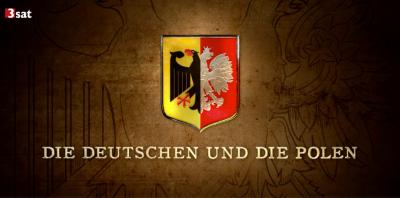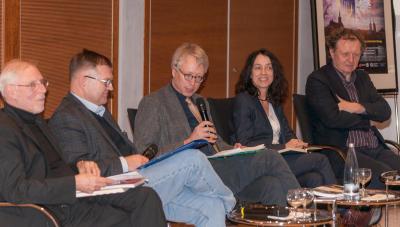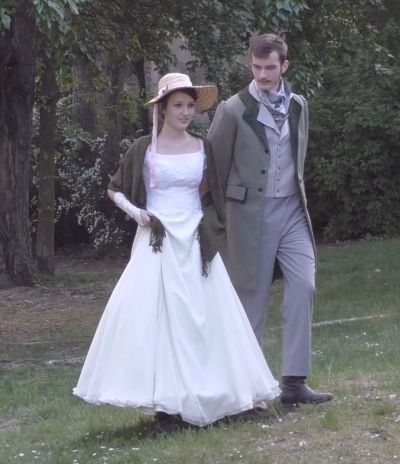“The Germans and the Poles, the history of a neighbourhood”. A film project and many stories.

After lengthy discussions we decided to divide the four parts in the following manner: two 45-minute broadcasts were dedicated to a more or less chronological presentation of the relationship: a further episode should be about the mutual relationship between German and Polish Jews; and part four – this was clear from the start – would deal with the history of Breslau, the European capital of culture in 2016. We were able to persuade the German Polish Institute to partner the project. The director Gordian Maugg was to be responsible for the movie sequences.
The broadcasting stations involved were, on the German side, ZDF/3Sat, and on the Polish side, initially the public broadcasting station TVP. Difficulties already began to arise during this first phase of preparations. True, there was no lack of goodwill and also no lack of benevolent funding sources (Hessen Film und Medien GmbH, Stiftung für deutsch-polnische Zusammenarbeit), but it was far from easy to correlate the demands of German television makers with the customary approach to productions adopted by their Polish partners. We not only had to take account of a tendency towards “histotainment” on the one side, and more traditional customs on the other, but also of the preferences and aversions to statements that might be interpreted politically. Thus the person of Rosa Luxemburg who had been originally intended to be spotlighted met with reservations on the Polish side, and the intention of presenting history by means of self-deprecating cabaret insertions by a well-known pair of satirists, also found little favour on the Vistula. At the same time the participating historians – alongside the present author, Igor Kąkolewski (Berlin), in a later period Krzysztof Ruchniewicz (Breslau) and time and time again, Hans-Jürgen Bömelburg (Gießen) – were forced to see that the selected form of presentation with a huge number of “entertaining” insertions clearly restricted the space available for transmitting the historical connections. The authors – alongside Andrzej Klamt, also Zofia Kunert – and the television editors paid great attention to getting what they considered to be the right balance between the various elements.
Just as work on the film was due to begin a power change in Poland at the end of 2015 caused considerable turbulence. Following the election victory of the right-wing National party, “Law and Justice” the government adopted a hard line towards the public television station that had been hitherto relatively liberal in its views. This not only resulted in a complete change in the leadership of the television station, but also to an immediate feeling of discomfort about a German-Polish coproduction whose aim was to show the whole range of utterly different identities and options in German-Polish relationships. Andrzej Klamt felt forced to terminate the collaboration, but was however soon able to obtain a new partner in the form of the leading private television channel, TVN.
The documentary recordings followed in autumn 2015 and spring 2016 in Poland, Austria and Germany: the movie scenes were also shot before the summer break in 2016. Because the film had received financial support from the state of Hessia it was also necessary to shoot some of the scenes that ostensibly took place in Poland, on Hessian sites. Hence St Hedwig was not shot in Breslau, but also landed on the Ronneburg, north of Hanau, whereas Józef Piłsudski was not released from imprisonment in Magdeburg but in Wiesbaden: and Friedrich Wilhelm IV also greeted the liberated Ludwik Mierosławski from the castle in the Hessian capital rather than in Berlin.




